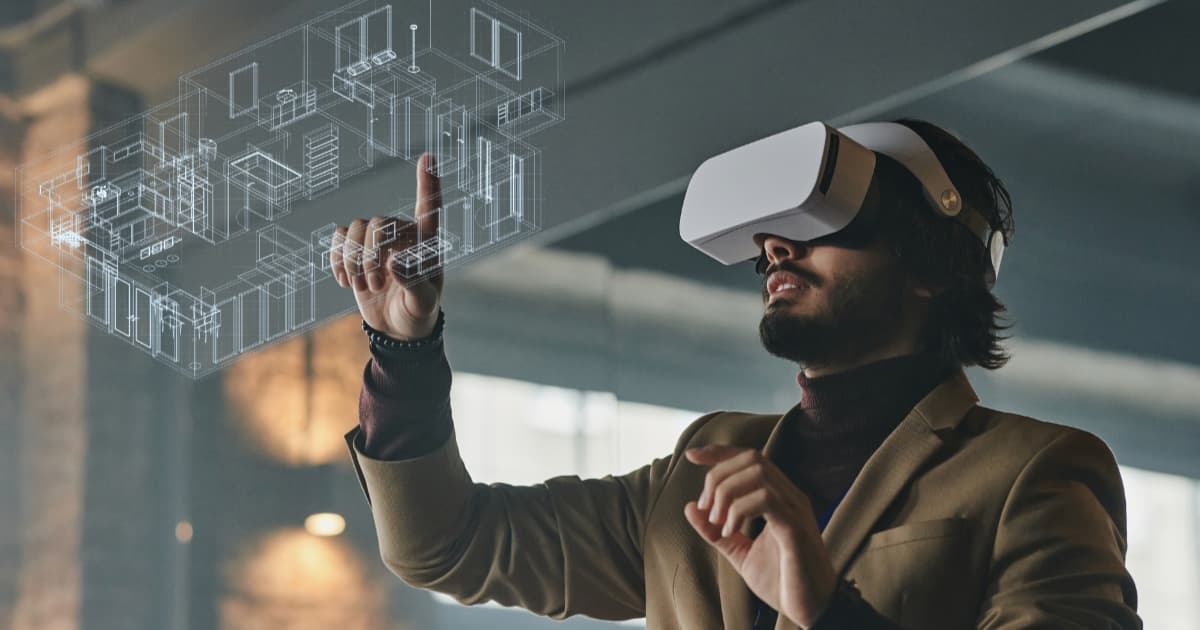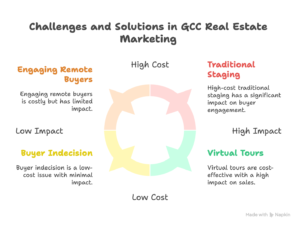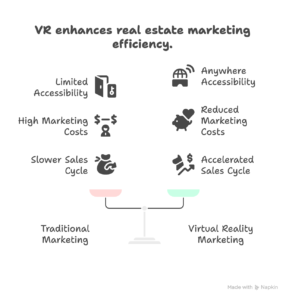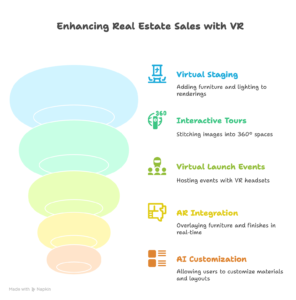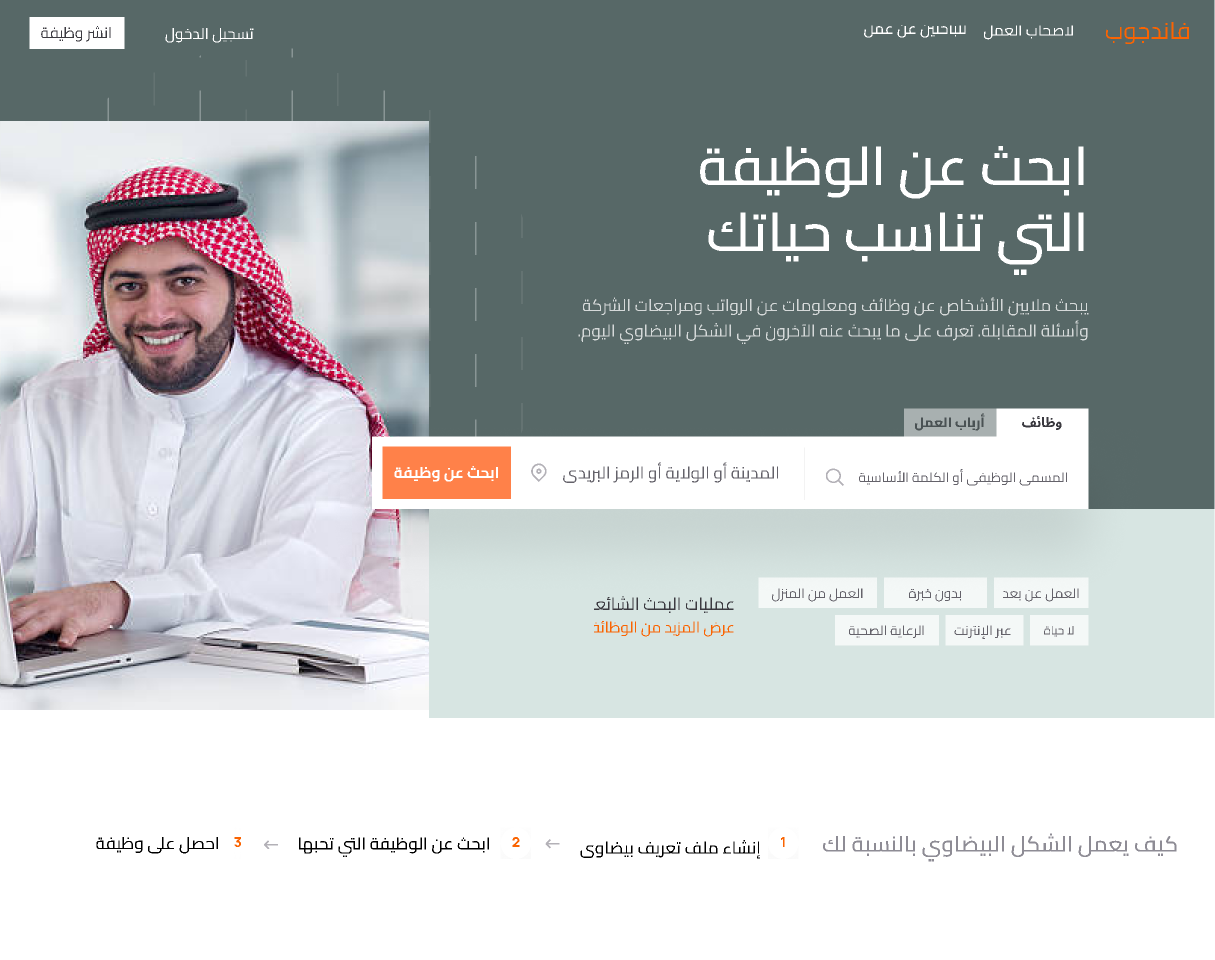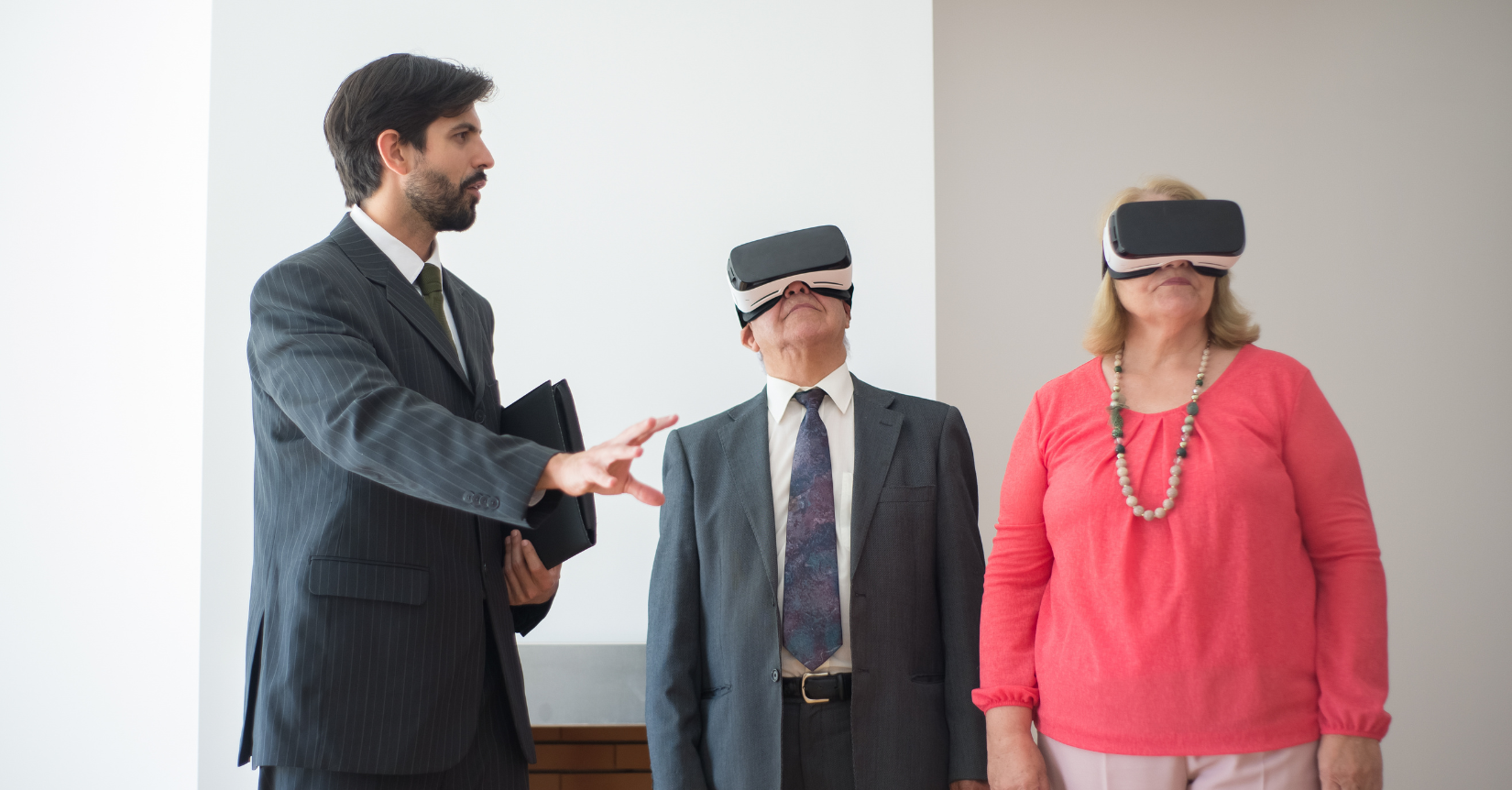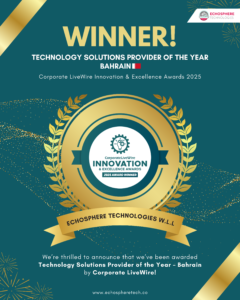Revolutionizing GCC Real Estate with Virtual Reality
Figure: Virtual-reality apps and 3D walkthroughs are enabling GCC developers to showcase properties to buyers anywhere. As Gulf real estate booms, developers face familiar challenges: overseas investors cannot visit in person, staging showflats costs a fortune, sales often drag on for months, and buyers hesitate over unseen details. Virtual Reality (VR) is emerging as a game‑changer. The GCC VR market is growing at an annual rate of ~33%[1], driven in part by real estate. Leading markets like Dubai are even delivering 300,000 new homes by 2028 (mostly off‑plan)[2]. In this context, immersive VR tours let buyers “walk through” apartments, offices, and villas from anywhere, boosting engagement and confidence (studies show listings with VR close 31% faster[3]).
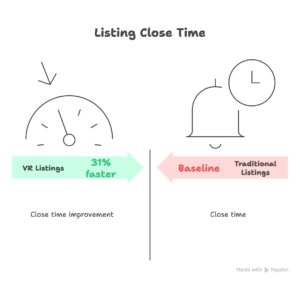
Key Challenges for GCC Developers
GCC developers juggle multiple pain points when marketing residential, commercial and off‑plan projects. Key challenges include:
Engaging remote buyers: A large share of Gulf property demand comes from abroad (expats and foreign investors), but they often can’t tour sites in person. In fact, roughly 60% of new inquiries from foreign buyers now originate via online virtual tours[4]. Without digital experiences, developers struggle to capture this audience.
High staging and showflat costs: Building and furnishing show units is expensive. Traditional staging can run $1,500–$5,000 per home[5] (plus months of setup). By contrast, virtual staging or VR tours cost only a few hundred dollars per property image[5], yet can have comparable impact on buyer interest.
Longer sales cycles: Off‑plan and high-end sales in the Gulf can take many months, tying up capital. Lack of on-demand visualization means deals move slowly. Data shows that listings with virtual tours close 31% faster than those without[3]. Similarly, developers report up to a 25% higher closing rate after adopting VR for residential projects[6].
Buyer indecision: Clients often hesitate when they can’t fully visualize a space. VR’s lifelike 3D walkthroughs build trust – research by Matterport finds 95% of buyers are more likely to inquire about a property that includes a 3D virtual tour[7]. This addresses buyer anxiety by making floor plans and finishes instantly clear.
These challenges are especially acute for Gulf markets that rely heavily on off‑plan sales and international investment. Developers need innovative ways to sell experiences, not just steel and concrete.
How VR Addresses These Challenges
Virtual Reality directly tackles each of these pain points through immersion and accessibility:
Immersive 3D Walkthroughs: VR tours use high-fidelity 3D models and 360° video to let buyers explore properties as if they were there. Whether it’s a furnished villa or an empty shell, clients can virtually “step inside,” turn around, and feel the space. This immersion helps overseas investors overcome distance, and also accelerates decision-making – buyers gain confidence faster, shortening sales cycles[3][6].
Anywhere Accessibility: VR experiences are device-agnostic. Buyers can use smartphones, tablets or headsets (like Oculus/Meta Quest) to tour developments from their home country. In practice, leading Gulf agencies report that 60% of new foreign buyer leads now come via virtual tours[4]. Developers can publish VR apps or web tours that engage clients 24/7, eliminating the need (and cost) for frequent in-person showings[8][4].
Accelerated Sales & Engagement: By making it easy to compare options in vivid detail, VR reduces buyer indecision. Property walkthroughs can highlight features (views, layouts, amenities) that static photos miss. For example, listings with VR typically close one-third faster[3], and Gulf developers see 25% higher closing rates once VR is part of the marketing toolkit[6]. Immersive tours also keep clients engaged longer – instead of flipping through brochures, they actively explore in VR, which statistics show greatly increases enquiry rates[7].
Reduced Marketing Costs: A virtual tour or staging package costs a fraction of physical alternatives. Instead of budgeting tens of thousands for showflats and open-house events, developers can create one high-quality VR model that serves all prospects. The GCC VR market report notes that virtual property tours save time and money by cutting the need for repeated site visits[8]. In Dubai, for instance, the government’s VR platform (used by over 1,000 agents) has already helped sell over $1 billion in property via virtual viewings[9]. This illustrates that VR isn’t just a gimmick – it drives real ROI while slashing staging expenses.
Technical Capabilities of VR Tours
The technology behind real estate VR has matured rapidly. VR tours typically begin with 3D modeling: architects and designers use software (e.g. Autodesk Revit, 3ds Max) to create detailed digital twins of buildings under development. Virtual staging software can then add furniture, lighting and materials, producing photorealistic renderings that buyers can explore. Tools like Matterport and specialized platforms stitch these images into interactive 360° spaces[7].
On the front-end, clients can access tours via web browsers or dedicated VR headsets. Developers now host virtual launch events where investors don headsets (Oculus Rift, Meta Quest, etc.) to walk through entire projects from halfway around the world[10]. Tours can include clickable hotspots to display unit specs, floor plans and even financing options. More advanced solutions integrate Augmented Reality (AR): buyers might overlay furniture in an empty apartment, or tweak finishes in real-time. Emerging AI capabilities are also being added – for example, some virtual tour platforms let users customize materials or layouts on the fly, tailoring the experience.
In short, VR/AR technology can convey properties with unprecedented realism and flexibility. It goes beyond static video by letting clients look wherever they want, pause or replay scenes, and feel truly immersed in the future space.
Business Impact and ROI
Adopting VR in the GCC real estate sector is both a technical upgrade and a strategic business move. Key impacts include:
Faster Sales and Higher Conversions: As noted, immersive tours dramatically shorten sales cycles[3] and raise closing rates[6]. Projects in Dubai are routinely marketed globally through VR, enabling deals that might otherwise stall. The Dubai Land Department reports over $1 billion in sales from its VR platform[9], proving that virtual tours can directly translate into revenue.
Cost Savings: VR lowers customer acquisition costs. Instead of multiple showflats or international roadshows, developers invest once in a digital model that scales effortlessly. Even the cost of professional virtual staging is minimal (often $30–$75 per image[5]) compared to thousands for physical staging. Over a portfolio of units, VR can cut marketing expenses by tens of percent while reaching a wider audience.
Competitive Differentiation: In a fast-moving market, standing out is crucial. Early adopters of VR/AR are seen as innovative and client-focused. In fact, nearly 70% of Gulf developers plan to include VR/AR in their 2025 marketing[11], making it a new industry standard. Developers who leverage VR position themselves as future-ready, attracting tech-savvy buyers and investors who value transparency and convenience.
Enhanced Customer Trust: By revealing spaces in detail before construction is complete, VR builds credibility. Buyers appreciate the ability to inspect every angle and room. This transparency reduces cancellation and renegotiation rates and fosters long-term trust – an intangible but vital business benefit.
Step Into the Future with EchoSphere Technologies
At EchoSphere Technologies, we empower real estate developers across the GCC to revolutionize the way properties are presented and sold.
Our VR Real Estate Visualization solution helps you:
- Showcase off-plan, residential, and commercial spaces in stunning 3D
- Reach global buyers with immersive, interactive walkthroughs
- Shorten sales cycles and reduce marketing overhead
- Build trust and stand out in a competitive market
Whether you’re selling a high-rise, a villa community, or commercial towers — we turn your vision into virtual reality.
📧 Reach out to schedule a demo or request a custom VR proposal.
Let buyers walk through your property — before it’s even built.
[1] [8] GCC Virtual Reality Market Size, Share & Forecast to 2033
https://www.imarcgroup.com/gcc-virtual-reality-market
[2] [3] [9] Virtual Reality Tours: Buy Dubai Off-Plan Properties from Anywhere in 2025
https://prelaunch.ae/virtual-reality-tours-how-to-buy-dubai-off-plan-properties-from-anywhere/
[4] [6] [7] [10] [11] PropTech Revolution: Virtual Reality and Interactive Tours in Real Estate Marketing | Skyline Holdings
https://skylineholding.com/en/blog/proptech-revolution-vr-and-interactive-real-estate-tours
[5] Virtual Staging vs Traditional Staging: Cost and ROI Guide
https://homejab.com/virtual-staging-vs-traditional-staging-cost-and-roi-guide/

